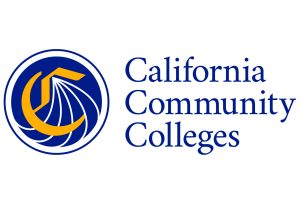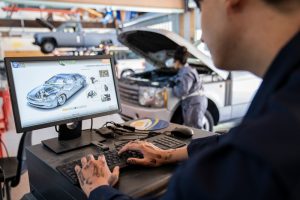 Through diverse and innovative workforce development programs and initiatives, California Community Colleges are directly shaping the future of the state’s workforce by addressing industry needs, bridging skill gaps and providing students with practical training and opportunities for economic advancement and career success.
Through diverse and innovative workforce development programs and initiatives, California Community Colleges are directly shaping the future of the state’s workforce by addressing industry needs, bridging skill gaps and providing students with practical training and opportunities for economic advancement and career success.
California’s growing workforce needs are becoming increasingly complex and varied. The rapid advancement of technologies like Artificial Intelligence and the growing emphasis on an environmentally sustainable future have created a surge in demand for local skilled workers.
“We are transforming the way we think about workforce development to create a skilled workforce that meets regional demand and uplifts California’s most diverse communities,” said Chancellor Sonya Christian. “Entering into partnerships with industry ensures more students are better prepared to enter quickly into high-paying careers.”
As California’s economy continues to shift and evolve to meet this growing demand, local communities need to remain nimble. Helping lead the charge are California Community Colleges. With its 116 geographically diverse campuses throughout the state and online, the community college system is preparing tomorrow’s workforce to ensure the Golden State remains competitive and capable of driving economic growth in a dynamic global market.
Community Colleges are Accessible and Versatile

Community colleges serve as versatile institutions, catering to a wide spectrum of educational needs. From providing traditional transfer pathways to four-year universities to work certifications and career education programs, community colleges’ offerings provide more students with a broad range of accessible career options to meet their needs … where they live.
With over 200 specialized career education programs designed to equip students with in-demand skills, community colleges are preparing students for careers in fields such as healthcare, information technology, advanced manufacturing and wildfire management. Many do so from their home communities while also working or supporting family.
These programs and initiatives are pivotal in demonstrating how California’s community colleges are not only adapting to but also driving the future of workforce development.
Partnering to Prepare a Climate Ready Workforce

Through partnerships, the private and public sector can help prepare a climate ready workforce capable of driving sustainable solutions while providing opportunities to more Californians. California Community Colleges are already forging these strategic partnerships including:
• The Tesla START Program at Evergreen Valley College in San Jose and Rio Hondo College in Whittier. The program combines rigorous coursework with hands-on training providing students with the advanced technical skills needed for careers in California’s growing electric vehicle (EV) industry.
• The Blue Economy and Climate Action Pathways (BECAP) certification program was launched last month, with 13 community colleges partnering with AltaSea positioned to drive one of the fastest growing economic sectors in California involving the ocean. Soon students will be able to learn skills for high-paying, ocean-centric jobs.
Both START and BECAP tackle important environmental issues impacting the world while addressing industry workforce challenges and contributing to local economic growth.
“Through development of our Workforce Development program in tandem with regional partners, community colleges are uplifted to better serve our 2 million-plus students and can fill the needs of rapidly expanding industries and secure high paying jobs,” said Vice Chancellor of Workforce and Economic Development Anthony Cordova.
As Cordova emphasized, the success of industry partnership is crucial in developing tomorrow’s workforce. These programs deliver a significant economic impact promoting an opportunity for social mobility for students interested in pursuing career technical education.
Delivering a Return in Investment

California Community Colleges are critical economic drivers for both communities and students alike, generating an estimated $128 billion in economic impact annually.
The data shows that students who embark on their career journey at a California community college find success via means of high-paying in-demand employment in their field of study with 74% of career education students securing jobs in closely related fields of study.
For millions of students, California Community Colleges provide career and mobility opportunities to the state’s largest and most diverse populations. Through continued partnership and alignment with employers, these collaborations ensure that students receive relevant and high-quality training that meets the demands of the modern job market. California’s Community Colleges are building the next generation of the workforce.

